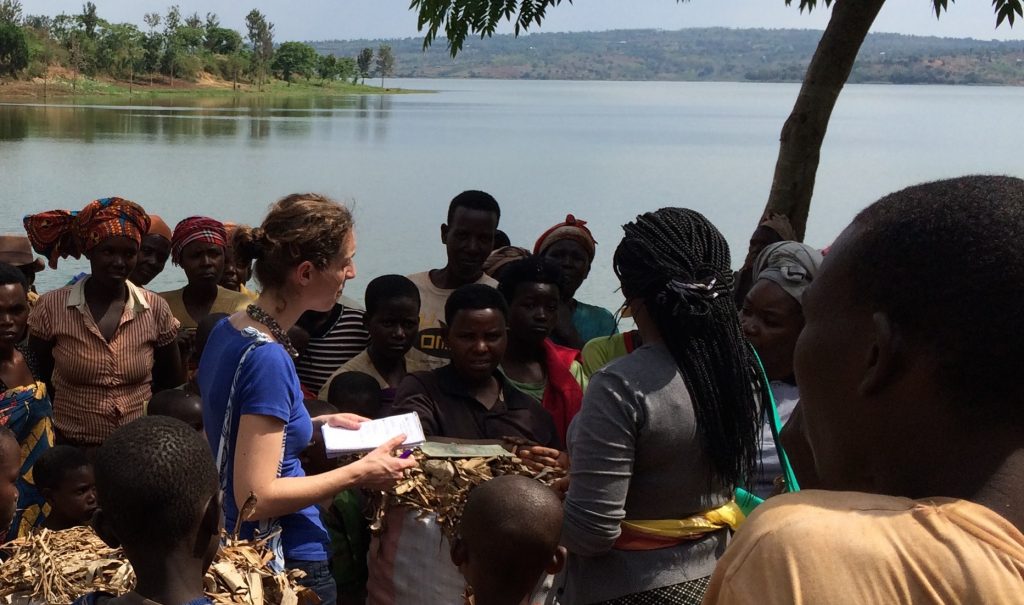
Consultants for Change (C4C) is an innovative professional development programme for those starting out in international development consultancy work or for more experienced consultants. The course aims to deepen your understanding of the processes of consultancy, good practices, as well as the qualities of a good consultant.
Giulia de Bernardi completed the Consultants for Change (C4C) Online course in 2018. She shares with us her reflections about the course as she prepares to begin her work as an independent consultant.
The next Consultants for Change online training course is open for bookings now! It will run from 12 October to 4 December 2020. For more information and to apply, visit the course page.
Could you please tell us about your current work as a consultant?
I am currently preparing for my first consultancy work in the coming months. Throughout my ten years’ experience working in the international development sector in various roles, I have grown a passion for monitoring evaluation and learning. I have cultivated my interest by specializing in this technical area with an MSc and other courses, independent studying, joining groups of discussions, and providing M&E support to the organizations I was working with. As a consultant, I offer M&E services to NGOs, such as designing MEL plans and facilitating capacity building in M&E. I am now specializing on the use of the Contribution Analysis approach to impact evaluations.
What is it about being a consultant that you enjoy?
Every client and every project is unique. Being a consultant allows me to learn continuously for and from new clients and projects. To take up a new assignment requires thorough preparation to be able to understand its contexts, the theory of change behind it, the stakeholders involved, and so on. After completing an assignment, so much can be learnt also from reflecting on what went well and what can be improved next time.
At the same time, providing my expertise as a consultant is a way for me to contribute towards the ultimate goal of development and of a better world. For instance, by supporting a project team in designing their MEL framework, I can contribute to lay the basis for an effective and efficient management of that project.
And what advice can you give to people who would like to get into consultancy work?
My first advice is to understand whether they are suited for this profession, as it requires great self-discipline to manage yourself well, and enough flexibility to adjust to new challenges. Discussing this with a mentor or taking a course on consulting can be of great help to understand whether consultancy work can be for them, given the high level of commitment it requires.
My second advice is to prepare for it. Even if sometimes life brings people to this career “by chance”, I think that quality of work and competence cannot prescind from continuous learning and training for this career.
The course helped me to reflect on my strengths and qualities, as well as my vulnerabilities and weaknesses, and therefore identify my areas of improvement.
Giulia de Bernardi
You completed the C4C course in 2018. What made you decide to enroll in the course?
I decided to enroll in the C4C course when I was still working as a programme officer with an international development charity. At that time, I was managing the work relationship with external consultants who were supporting my team in implementing the MEL plan of a multi-country programme. I was looking for a course that could help me understand the client-consultant relationship better, from a client perspective.
At the same time, I was already considering starting a career as an independent consultant in the near future. I thought that the C4C course could provide a good opportunity both to assess whether that could be the right decision for me, and to learn how to take off in this new path.
What are the most useful lessons you’ve learned from the course?
One of the most useful lessons I have learnt from the course is that consultants and consultancy work are often challenged by similar difficulties. I appreciated that many of the difficulties I was facing were common to others. The course provided a safe space where I could discuss with my course mates and the trainers the strategies and solutions to my issues. I have also become aware of other potential challenges a consultant can face, and I now feel better equipped to prevent, mitigate or address such challenges.
Another important lesson I have learnt is that quality consulting goes beyond the technical expertise. It involves soul and personality, the ability to truly reach out to and work with the client. Even these skills can be nurtured if we humbly acknowledge the need to continuously learn and if we are ready to assess our own performance as consultants.
In what way has the course shaped your work as a consultant?
The course has provided me with a set of very useful tools I refer to any time I need to refresh some aspects of working as a consultant, including creative data gathering methods and checklists of questions to consider during the different phases of a consultancy process. The course helped me to reflect on my strengths and qualities, as well as my vulnerabilities and weaknesses, and therefore identify my areas of improvement. As a result, I have learnt to maintain a personal development plan that I regularly refer to and update to keep on improving my knowledge and skills. For instance, as I realized that my active listening skills needed strengthening, I started practicing active listening not only in work circumstances but in my everyday life too.

Giulia de Bernardi is an independent consultant who undertook the Consultants for Change (C4C) online training with INTRAC in 2018.